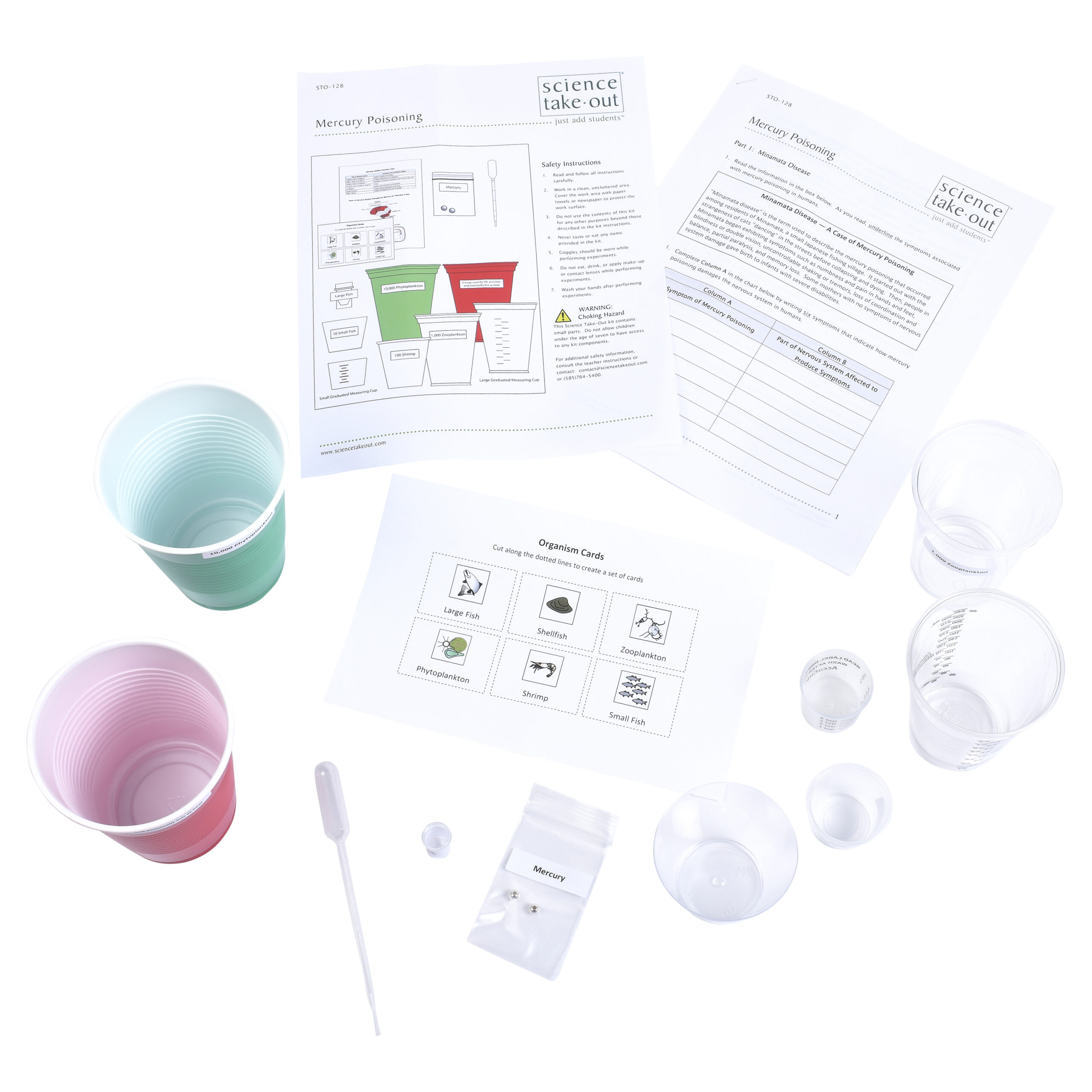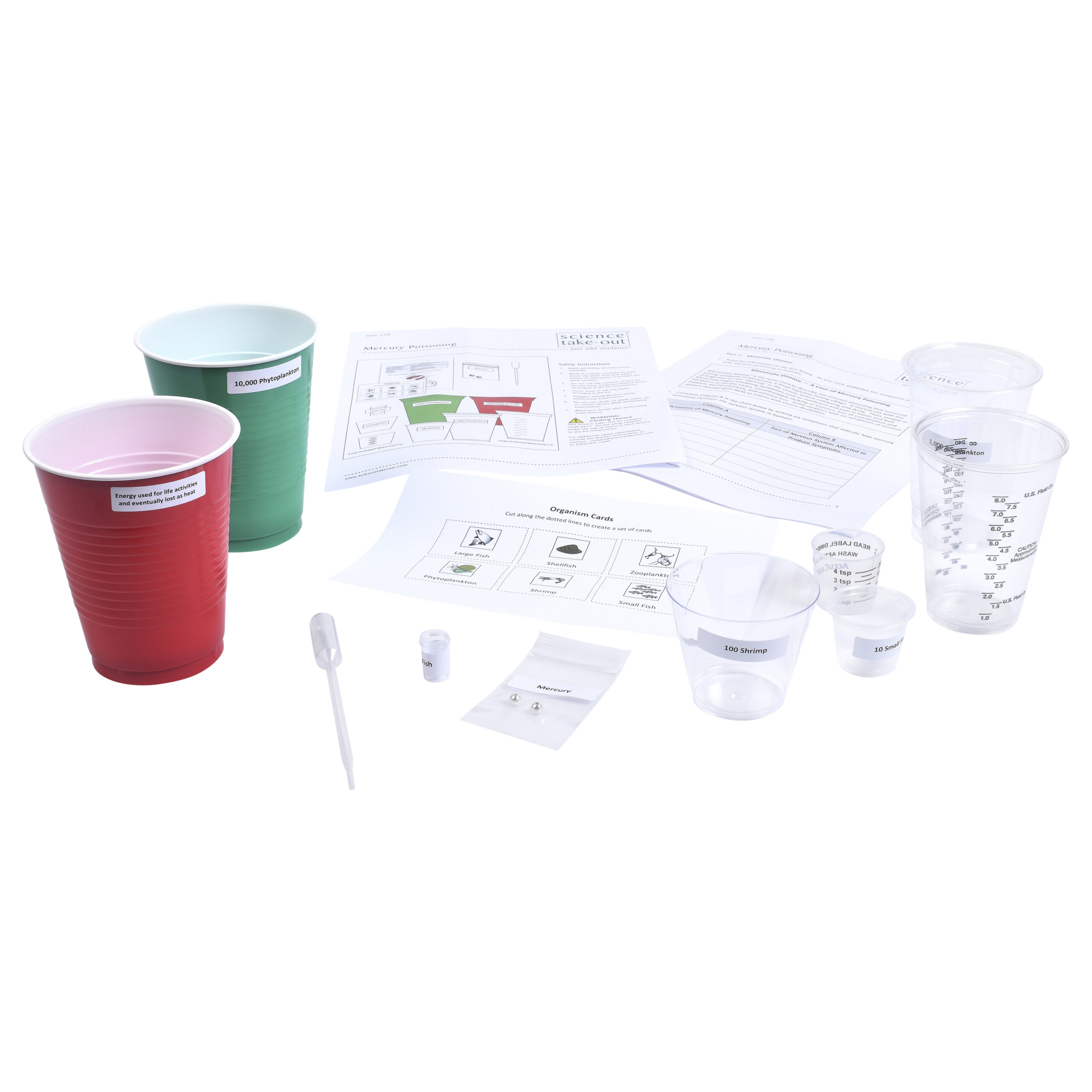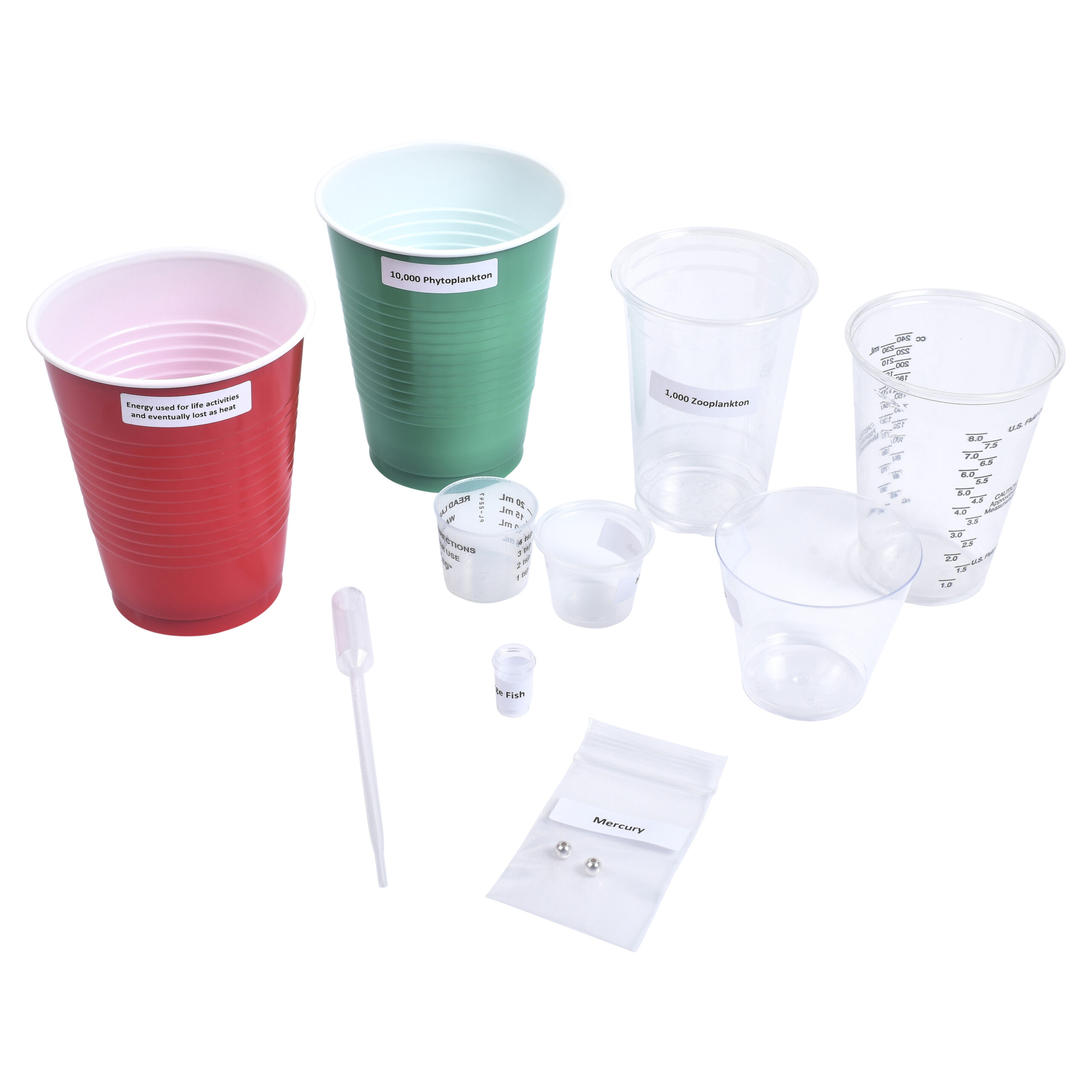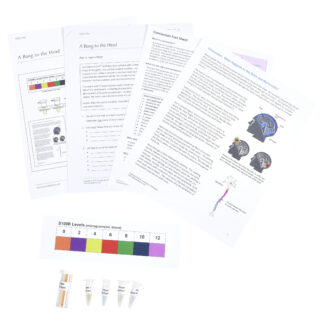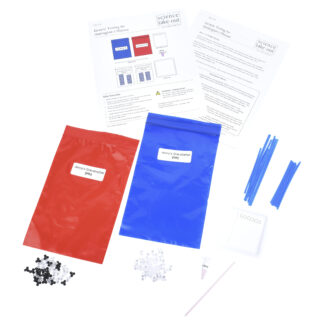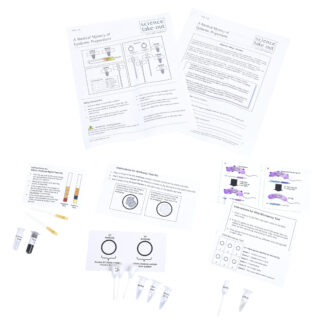Mercury Poisoning
$11.95 – $71.95
How does mercury affect the brain? Model biomagnification.
- Learn about the effects of mercury poisoning on the brain.
- Model the flow of toxins and energy through an ecosystem’s food chains and food webs.
- Develop the concept of biological magnification for environmental toxins.
Kit Includes
- Student instructions
- Organism Cards
- Nervous System Function Chart
- Parts of Nervous System Damaged by Mercury diagram
- 1 bag of “mercury” beads
- 6 labeled cups to represent organisms in food chain
- 1 cup to represent energy lost from food chain
- 1 large measuring cup
- 1 small measuring cup
- 1 graduated dropper
Quantity Discounts
Kits:
- 1 – 9 kits: $11.95 each
- 10 – 24 kits: $11.35 each
- 25+ kits: $10.76 each
Unassembled:
- 1 – 9 packs: $71.95 each
- 10+ packs: $68.35 each
Refills:
- This kit does not require refills since all its contents are reusable.
Correlation to Next Generation Science Standards (NGSS) Shop by NGSS »
Performance Expectations:
HS-LS2-4. Use mathematical representations to support claims for the cycling of matter and flow of energy among organisms in an ecosystem.
Science & Engineering Practices
Developing and Using Models - Develop a model to describe phenomena.
Disciplinary Core Ideas
LS2.B: Cycle of Matter and Energy Transfer in Ecosystems - Food webs are models that demonstrate how matter and energy is transferred between producers, consumers, and decomposers as the three groups interact within an ecosystem. Transfers of matter into and out of the physical environment occur at every level. Decomposers recycle nutrients from dead plant or animal matter back to the soil in terrestrial environments or to the water in aquatic environments. The atoms that make up the organisms in an ecosystem are cycled repeatedly between the living and nonliving parts of the ecosystem.
Crosscutting Concepts
Energy and Matter - The transfer of energy can be tracked as energy flows through a system.
